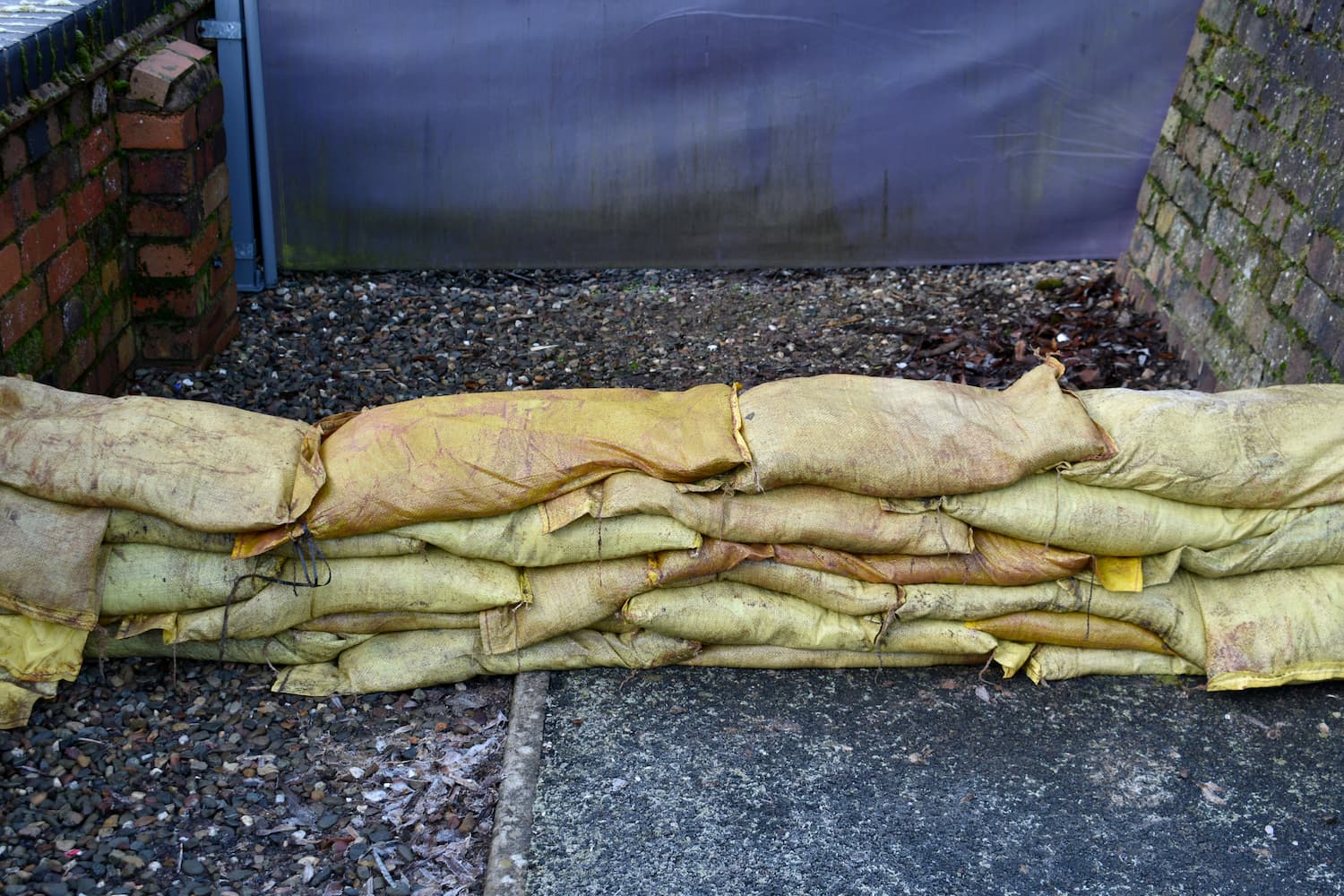Flood danger

Depending on the location of your rugby club, you may be at risk of these types of flooding
Surface water flooding in times of heavy rain
In prolonged, exceptionally heavy downpours, which are becoming more frequent, the ground may become saturated and the drains and sewers which carry away surface water may not be able to cope, leading to surface water flooding. Although this is more likely in low-lying areas, and to premises at the foot of slopes, it can happen to many other properties which are not specifically designated as being at risk of flooding on the Environment Agency’s flood risk maps.
Surface water flooding may be triggered or made worse in urban areas where the ground consists of mostly hard surfaces such as concrete or tarmac so the rainwater flows straight off rather than soaks away into the ground.
Groundwater flooding
Rising groundwater levels resulting from heavier rainfall and reduced abstractions can present problems. Groundwater flooding generally occurs during long and intense rainfall when infiltration into the ground raises the level of the water table until it exceeds ground levels. It is most common in low-lying areas overlain by porous soils and rocks, or in areas with a naturally high water table.
Irrespective of whether water shows at the surface, rising groundwater levels are posing an increased threat to buildings with basements. Such flooding may occur separately or in conjunction with flooding from other sources such as surface water flooding.
River flooding
River flooding occurs when rivers and streams are unable to carry away floodwaters within their usual drainage channels. Adjacent low-lying properties and land are then liable to be flooded. River flooding can cause widespread and extensive damage because of the sheer volume of water, and may be longer-lasting and more difficult to drain away. Fast-flowing floodwaters can also be a threat to peoples’ and animals’ safety and can structurally damage buildings.
Breaches in reservoirs pose a particular hazard, with the potential to release large quantities of water if the failure is catastrophic.
Be aware of the dangers of floodwater
You may be surprised by the power and force of what seems to be relatively little water.
• Six inches of fast-flowing water can knock over an adult and two feet of water can lift a car off the ground. Do not drive or cycle through floods if you cannot be certain how deep they are – there may be hidden debris or open manholes under the water.
• Keep children and other vulnerable people away from it
• Wash your hands thoroughly if you touch it – it may be contaminated with sewage
• If flood water is about to enter the property, turn off water, electricity and gas supplies
It is important to stop all of these utilities. Flood water and the items within it can cause damage to pipes and cabling, resulting in leaks or instabilities. Leaks in water pipes could add to the problem, while a gas leak will pose an immediate risk to your health.
Electricity and water are not a good mix, so ensure all power is off before the water gets in to the premises. Ensure you under no circumstances touch electrical sources such as switches and plugs while you stand in flood water as this could result in electrocution.
Always wear waterproof clothing when in floodwater
When cleaning up after a flood in your clubhouse or on your pitch, always wear wellies, waterproof jackets and trousers - and even rubber gloves. These items can protect against infection and illness when in floodwater, which will contain human and animal waste as well as various chemicals.
Normal household or commercial cleaning detergents and bleaches will decontaminate your property.
Don’t throw anything away until the insurance company have assessed the damage
Once you have made your claim, you may want to get on with cleaning up at your club and starting again, but it may be that many of the damaged and dirty items will be repaired, cleaned or replaced by the insurance company.
Who can assist during a flood?
- The Environment Agency - 0345 988 1188 (24 Hours)
- Floodline - sign up to Floodline Warnings Direct: www.environment-agency.gov.uk